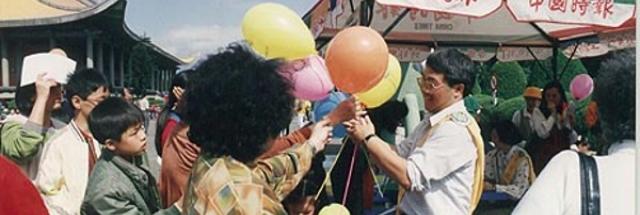Background
The first IofC Clean Election Campaign took place in Taiwan in 1992 – the first parliamentary election allowed to be contested by parties other than the ruling Kuomintang (KMT). The IofC team, led by Ren-Jou Liu, launched a campaign inviting people to sign a declaration promising not to accept bribes from candidates. Other non-government organizations and religious bodies were invited to join. The campaign had a four-point strategy:
- strive for joint action with non-government groups and religious groups
- win the trust and support of the ordinary people
- work for a positive response from the media and the public
- make sure that the government keeps its promises in carrying out reforms
Eventually 67 NGOs gave their support and sent the declaration to their members. By the time of the election, some 670,000 had signed statements committing neither to accept a bribe nor to vote for any candidate who offered a bribe. Of the 350 candidates for election, 162 signed pledges against vote-buying.
Between 1992 and 1997, the Clean Election Campaign was in action at every election – national, city or local, and helped mobilize public support for various government crackdowns on corruption. After 1997 the success of the Clean Election Campaign led to the setting up of an officially sponsored campaign against vote-buying and other forms of political corruption.
Kenya
Based on the success in Taiwan, a 26 year old Nairobi-based lawyer Joseph Karanja initiated a campaign ahead of the 1997 General Election in Kenya.
He says ‘My own involvement in wanting to make a difference in my own country started in 1994. I had just returned from India where I had spent six years studying Arts and Law. Like any other young man I looked forward to reaping the benefits of high learning. I never gave much thought to what was happening in my country. April 1994 found me doing internship with UNHCR. It is the same time that Genocide erupted in Rwanda and close to a million people were killed. The events in Rwanda made me realize that the Genocide could happen anywhere. At that particular moment I launched a Clean Election Campaign, whose aim was to fight corruption and encourage good leadership across the board.
Clean Election Campaign was an attempt to encourage every Kenyan to take responsibility for our country. The campaign took root very quickly as the majority of Kenyans were looking for a clean nation.’
The heads of Catholic, Anglican and other churches as well as Muslim leaders were approached and gave their full backing to a campaign not only asking people not to accept bribes but also to encourage honest men and women to stand for election and for ordinary people to take responsibility for the integrity of the electoral process. The twenty-two Catholic bishops invited all Kenyans, especially the eight million Catholics, to support the campaign by signing a pledge form, promising not to accept bribes, to prevent (where possible) and expose actions that would distort or rig the election results, and not to take part in any violence. In all, over 700,000 pledges were signed and returned and a national movement was formed, gaining support from the media and other organizations. The apathy, born of frustration that change was possible, was broken. Candidates who might not have considered standing for election were encouraged to stand, and 30 of them won seats in parliament. Eleven government ministers and twenty-six deputy ministers lost their seats and President Arap Moi’s majority in parliament was reduced to four.
A second major campaign took place ahead of the 2002 Kenyan elections for Presiden and Parliament. Partners included Transparency International Kenya, and funding was given by the European Unions enabling 20,000 Kenyans to act as election observers, greatly reduding the possibility of vote-rigging and drawing on lessons learned during the 1997 campaign. The subsequent elections were one of the most peaceful and incident-free in the country's history and involved a peaceful transfer of power from the ruling Kenya African National Union party (who had ruled since independence) to a new government elected on the basis that they would tackle corruption.
Subesequent Clean Election Campaigns have taken place in Solomon Islands, Sierra Leone, and Ghana.


